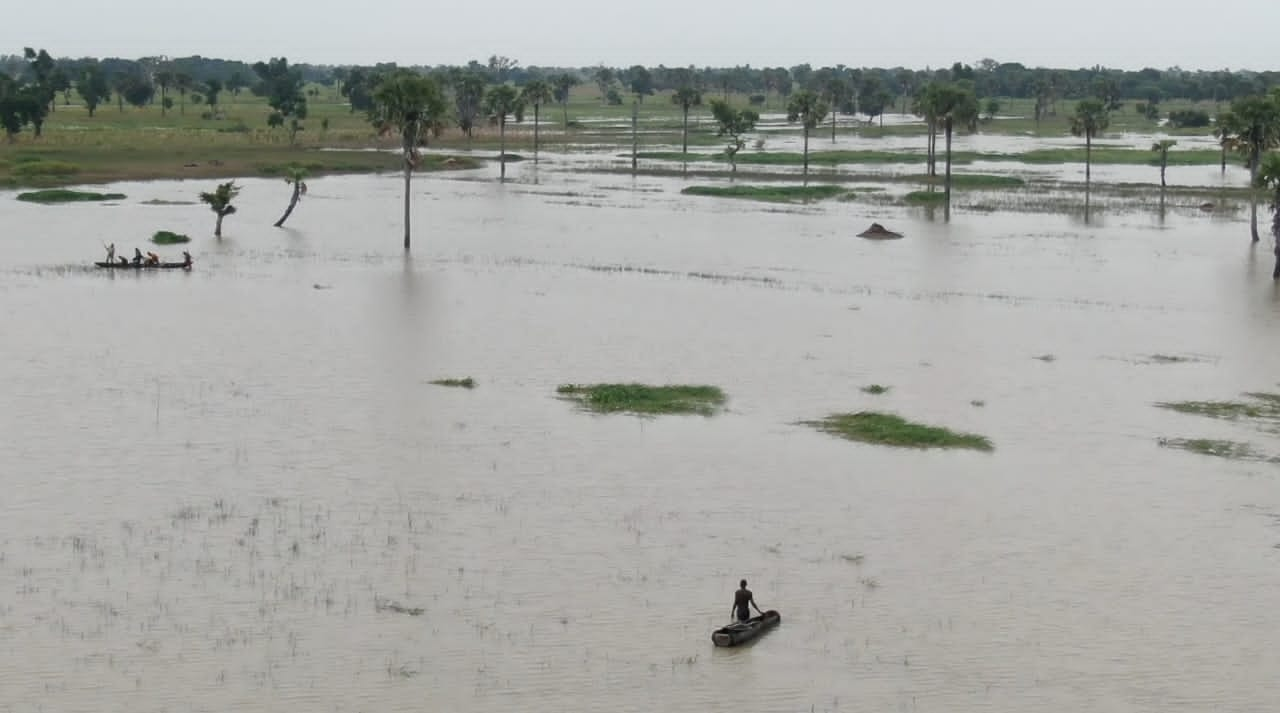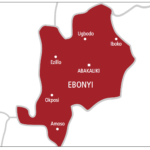In what has become a yearly ritual, the federal government has warned that not less than 178 local government areas (LGAs) in 32 states and the Federal Capital Territory (FCT) are at a high risk of flooding this year.
The Minister of Water Resources, Mr Suleiman Adamu, made the disclosure at the official presentation of the 2023 annual flood outlook released by the Nigeria Hydrological Services Agency (NIHSA) in Abuja recently.
The outlook, themed ‘Flood prediction and its impact on socio-economic livelihood’, is targeted at flood early warning, and forecasting in order to minimise the adverse effects of the flood on lives. According to the data, 178 LGAs in 32 states and the FCT are located in high-risk flood zones; 224 LGAs in 35 states and the FCT are in moderate-risk zones; and the remaining 372 LGAs are in low-risk zones.
The minister said the purpose of the outlook was to present probable flood scenarios for this year and to disseminate information to all, especially in flood-prone areas and further reduce resultant effects.
In the past decade, flooding has become a recurring problem which Nigerians have to contend with every year. Most often it left in its trail losses of lives and property worth billions of naira.
For example, the flooding in 2012, according to the National Emergency Management Agency (NEMA), affected 30 of Nigeria’s 36 states. The floods were termed as the worst in 40 years and affected an estimated total of seven million people. The estimated damage and losses caused by the floods were put at N2.6 trillion.
Recently, the Minister of Humanitarian Affairs, Disaster Management and Social Development, Hajiya Sadiya Umar Farouk, disclosed that the total direct economic damage of the 2022 flooding, based on currently reported statistics as of November 25, was in the range of US$3.79 billion to US$9.12 billion with the best (median) estimated at US$6.68 billion (N3 trillion).
She said the number of people affected had risen since June 2022 to 4.4 million, and as of November 25, 4.9 million affected people were recorded which was around two per cent of the country’s population.
“In terms of destroyed and damaged buildings, there is significant damage in many states, with counting still ongoing. There is significant damage to infrastructure including roads, irrigation and river infrastructure as well as WASH and electricity infrastructure with around $1.23 billion ($0.959-$1.724 billion) in damage expected,” she also said.
In addition, the damage to agricultural crops, associated water infrastructure, fisheries and livestock was also severe. The minister explained that over 650,000 hectares of crops were damaged
In another report, the Director General, National Emergency Management Agency (NEMA), Mustapha Habib Ahmed, was quoted as saying that 662 people lost their lives to flood in 2022 while 2,430,445 were displaced.
He said another 3,174 people suffered various degrees of injuries during the flood disaster.
Ahmed spoke at the opening ceremony of a one-week strategic executive seminar for staff of the agency and wider Nigerian emergency management by the Bournemouth University Disaster Management Centre (BUDMC).
In spite of these worrisome statistics, Daily Trust notes with sadness that the situation may not be much better if the floods occur again.
Over the years, we have been seeing these statistics while workshops and seminars are held for relevant officials every year on how to address the menace. Huge sums of money are annually budgeted or released in the name of tackling flooding yet the situation remains the same.
Daily Trust findings showed that many of the affected people since 2012 are still living in makeshift houses or with relatives. The result is that agriculture and the local economy are disrupted as millions could not return to their farms or trade.
Worst still, more often than not, no concrete plan is made to sensitise people living in flood-prone areas about the danger that awaits them or be relocated to safer environments.
We believe that it is time that federal, state and local governments come up with a sound policy of tackling flooding. Our emergency management agencies should be made to realise that their job is to prevent disaster, rather than giving out mats and food after it has happened. It is time to move away from rolling out statistics and warning signals to actually taking action.
There should be adequate sensitisation of citizens in flood-prone areas to avoid any act that may worsen their situation. Where it is necessary, punitive action should be taken against non-compliance.
Nigerians must also key into any action to prevent flooding in their respective communities. The least we can do is to ensure clean environment and avoid blocking drains or building on waterways.
Nigeria has lost too much to flood and it is time to put a stop to it.




